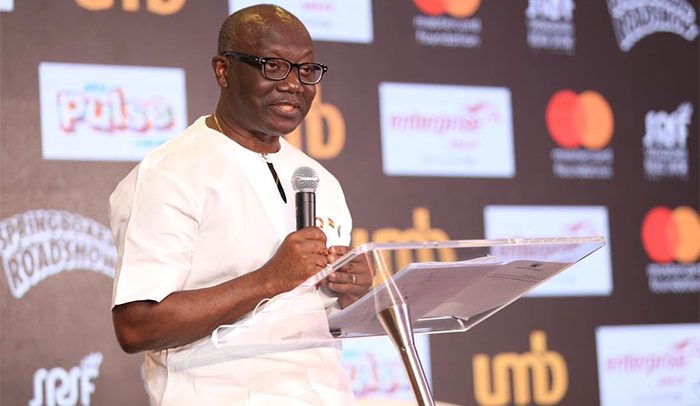The capital markets reaffirmed their confidence in Ghana’s economy again as the nation’s Eurobond rose 1% to 65.82 cents in the dollar by 2:52pm yesterday after an announcement by the government to engage the International Monetary Fund (IMF) for support.
The country’s dollar bonds, maturing in 2027, gained for a second day amid investor confidence that there will be a turnaround in the government’s decision to seek an IMF bailout to address the deficit financing stress.
A report by Bloomberg indicated that the gain is the highest in more than six weeks after the bonds traded at distressed levels, with yields above 20%, prior to the announcement to seek balance-of-payments support.
On February 4, 2020, Ghana became the first African country ever to issue a 41-year bond, successfully raising $3 billion in the international debt capital markets.
Bond Issuance Results
The Ministry of Finance said the 2020 international bond issuance resulted in an order book five times the amount required on Tuesday, February 4, 2020, pointing out that the bond issuance came two weeks after international ratings agency, Moody’s, gave a resounding vote of confidence in the country’s economy with a positive outlook.
Following a three-day roadshow in a series of fixed-income investor meetings in New York, Boston and in London, Ghana issued a second tri-tranche Eurobond transaction under its International Capital Markets Programme.
The transaction comprised US$1.25 billion six-year Weighted Average Life (WAL), US$1 billion 14-year WAL and US$750 million 41-year WAL priced at a coupon rate of 6.375%, 7.875% and 8.750% respectively.
International investors expressed interest in Ghana’s macroeconomic fundamentals following a stellar economic performance, three years after a 2016 economic decline dented the country’s outlook, the Finance Ministry indicated in a statement, and added that the growth rebounded strongly from 3.4% in 2016 to 8.1% in 2017 before moderating to 6.3% in 2018.
It will be recalled that in 2016, Ghana issued a six-year Eurobond at 9.250% compared to the February 4, 2020’s six-year bond at 6.375%, a staggering 288 basis points improvement.
IMF Gravitas
“The market had been concerned over the government’s financing needs in the short term. An IMF programme may also provide some gravitas to the government’s claims of fiscal reform,” the Bloomberg report quoted Stephen Bailey-Smith, a Kolding, Denmark-based investment strategist at Global Evolution, as saying.
The report stated that the government aims to cut its budget shortfall to 7.4% of gross domestic product this year from an estimated 12.1% of GDP in 2021, which is becoming more difficult as price pressures emanating from Russia’s invasion of Ukraine take a toll on economic activity.
The inflation rate rose to 27.6% in May from 8.5% last year, while the economy grew 5.4% last year, but expanded less than projected in the first three months of 2022 at 3.3%.
Public debt increased to 78% of gross domestic product at the end of March from 76.6% in December, and Samantha Singh of Absa Bank in Johannesburg was said to have indicated that a potential IMF programme could play an important role in helping the country entrench its fiscal consolidation path and reduce debt vulnerabilities.
She said the sooner these policies are implemented, they could also reduce the severity of any potential liability management.
President Akufo-Addo is expected to lead the Ghana team for the negotiation with officials from the International Monetary Fund (IMF) who were billed to arrive in the country yesterday.
The government hopes to secure about US$2 billion from the IMF to shore up the country’s reserves and build buffers to mitigate the hardships on Ghanaians.
The IMF officials will also assess Ghana’s macro fiscal data in order to make appropriate recommendations for a suitable programme for the country.
Background
The government, on July 1, 2022, announced that it had decided to engage the IMF to provide balance of payment support to Ghana as part of a broader effort to quicken the country’s build back, in the face of challenges induced by the COVID-19 pandemic and, recently, the Russia-Ukraine crisis.
The Information Minister said the US$2 billion would help increase the country’s foreign reserves, and make available to the government liquidity to deal with the external debt servicing obligations as well as balance of payment support.
He revealed that there was US$1 billion from the international capital market which is ready for the country to access, but quickly added that this would require parliamentary approval.
By Ernest Kofi Adu


